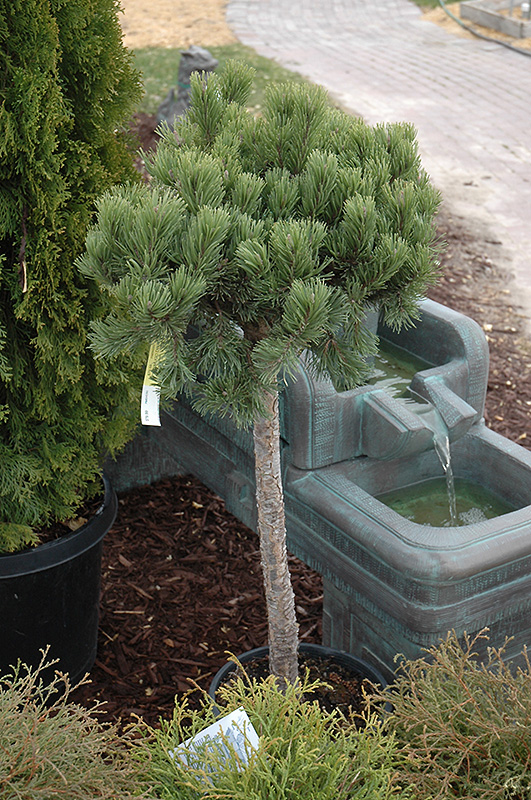Dwarf Mugo Pine
Pinus mugo 'var. pumilio (tree form)'
Height: 7 feet
Spread: 4 feet
Sunlight:
![]()
Hardiness Zone: 2b
Other Names: Mugho Pine, Swiss Mountain Pine
Description:
A naturally compact version of the species in small tree form; slow growing, rugged and hardy, excellent for form, texture and color detail in home gardens, maintain shape with judicious pruning; needs full sun
Ornamental Features
Dwarf Mugo Pine is a dwarf conifer which is primarily valued in the landscape or garden for its highly ornamental lollipop-like shape. It has emerald green evergreen foliage. The needles remain emerald green throughout the winter.
Landscape Attributes
Dwarf Mugo Pine is a dense multi-stemmed evergreen shrub, selected and trained to grow in a small tree-like form with the primary plant grafted high atop a standard. Its relatively fine texture sets it apart from other landscape plants with less refined foliage.
This is a relatively low maintenance shrub. When pruning is necessary, it is recommended to only trim back the new growth of the current season, other than to remove any dieback. It has no significant negative characteristics.
Dwarf Mugo Pine is recommended for the following landscape applications;
- Mass Planting
- Hedges/Screening
- General Garden Use
Planting & Growing
Dwarf Mugo Pine will grow to be about 7 feet tall at maturity, with a spread of 4 feet. It has a low canopy with a typical clearance of 1 foot from the ground, and is suitable for planting under power lines. It grows at a slow rate, and under ideal conditions can be expected to live for 50 years or more.
This shrub should only be grown in full sunlight. It prefers dry to average moisture levels with very well-drained soil, and will often die in standing water. It is considered to be drought-tolerant, and thus makes an ideal choice for xeriscaping or the moisture-conserving landscape. It is not particular as to soil type or pH, and is able to handle environmental salt. It is highly tolerant of urban pollution and will even thrive in inner city environments. This is a selected variety of a species not originally from North America.




